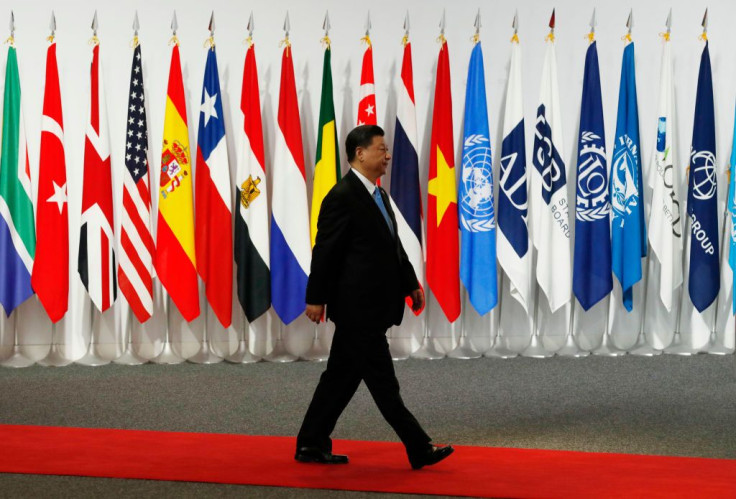Duterte, Xi 'Agree To Disagree' On Disputed Islands, Code Of Conduct In The Works

Chinese President Xi Jinping is remaining firm in refusing to accept the United Nations Permanent Court of Arbitration (PCA) ruling from The Hague in 2016. The ruling sided with the Philippines and rejected Beijing’s sweeping claims over virtually the entire South China Sea. This came as no surprise to Philippine President Rodrigo Duterte, currently in China on bilateral talks where he promised to raise the issue with his Chinese counterpart.
Presidential spokesperson Salvador Panelo agreed and said in a media briefing, “He [Duterte] is not surprised because precisely that has been the position of them [China] even two, three weeks before. The spokesman has said that, the ambassador to the Philippines has said that.”
Panelo added the Chinese president was not offended by Duterte’s move to raise the ruling in their brief discussion.
After this bit of political posturing, Xi did agree that a “Code of Conduct” was needed to deal with the passage of Chinese ships through the disputed waters. Over the three years of Duterte’s first term, several Chinese warships have passed through Philippines waters without giving any notice to the Philippines government and in some cases, turning off electronic detection devices.
Panelo continued, "With the Philippines as the designated country coordinator of the ASEAN-China Dialogue Relations, the Filipino head of state articulated his firm belief that the Code of Conduct would contribute in the resolution of numerous conflicts in the disputed areas of the South China Sea.”
Three other issues were discussed during Thursday’s meeting:
- On possible joint oil and gas exploration, a spokesperson said Xi had commented: “the steering committee created for that purpose should prepare a substantive program on the matter.” Duterte previously welcomed a 60-40 deal on oil and gas development with China, in favor of the Philippines.
- The two leaders seemed to table the PCA ruling and instead focused on the long history between the two countries where many Filipinos claim Chinese ancestry, including Duterte. Panelo said in an interview with CNN, "They agreed that the basis of their friendship should be anchored on the hundred century-long friendship, that it should be based on the benefits that the people of the two countries will get out of their cooperation."
- Duterte also brought up the Recto Bank incident where a Chinese vessel struck a Filipino fishing boat in June. Just hours before Duterte left for China on Wednesday night, the Philippines received a letter of apology that included some plans to compensate the fishermen for their losses. Duterte expressed appreciation for China’s “readiness to provide compensation to our fishermen who almost lost their lives,” according to Panelo.
Panelo added that both leaders "agreed to work together, on the basis of mutual trust and good faith, to manage the South China Sea issue…”. But on the lingering issue of the PCA ruling, they will simply “agree to disagree” for the time being.
© Copyright IBTimes 2024. All rights reserved.





















